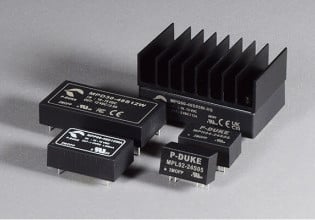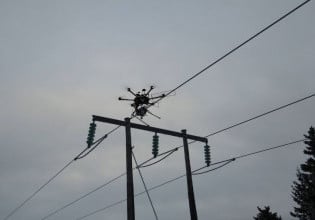Saule Gets €4.35 Million for Printed Flexible Perovskite Solar Modules for IoT Devices
The Internet of Things (IoT) stands for the extension of the internet beyond computers and smartphones to a broader scope of devices that gather, generate, and send information back and forth. It is estimated that as of 2018, there are around 7 billion connected appliances that fall into the category of IoT, and this number is expected to reach 22 billion by 2025.
From an economic perspective, it makes sense to ensure that most of these devices are autonomous and using photovoltaic energy harvesting as a power supply is a promising strategy to circumvent the necessity of battery exchange to enable seamless continuous operation.
Saule Technologies has pioneered the manufacturing of flexible perovskite solar cells. These types of devices offer excellent energy harvesting capabilities, particularly interesting for applications where the presence of direct sunlight is not prevalent. Perovskite-based solar cells are the fastest evolving solar technology to date, with their single junction record power conversion efficiency in the lab already achieving 25.2% under one sun condition.
However, this performance can be even significantly higher when perovskites are exposed to artificial light, which is critical for the IoT solutions and an exceptional feature of the products developed at Saule Technologies.
The project leader Dr. David Forgacs commented: “The solution that we are developing will unlock even more possibilities to utilize wireless sensors, which will have a significant impact on the way we live our lives over the next decade. We are already in advanced discussions with potential offtakers for this product as we notice a unique market opportunity which differentiates Saule from its competition”
With the financial support from NCBR (The Polish National Centre for Research and Development), Saule Technologies will further improve the low-light performance of these perovskite solar modules, enabling them to provide the highest power output among all energy harvesting solutions available on the market, and ramp-up the production capabilities of the company in the upcoming years.
The Chief Technology Officer, Dr. Olga Malinkiewicz explained: “We are grateful for the continuous support of NCBR. Successfully finishing our first project with the launch of our pilot line has shown that we have an excellent team and technology. With this opportunity we are lunging towards the mass production of our devices.”
The project was evaluated with the highest score among all the concurrent participants, only one point below the maximum achievable. This highlights that the panel of experts see a great potential in the concept, expecting a significant impact on the market.
“We are aiming to be at the forefront of this development by looking to collaborate with big industrial players. In particular, those active in the field of microelectronics, big data, and telecommunications are of great interest for us to jointly develop the game-changing technologies of the future,” added Co-founder Artur Kupczunas.






